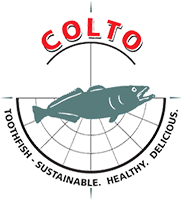The Patagonian toothfish, Dissostichus eleginoides, is a deep-water nototheniid fish, endemic to the Southern hemisphere. It supports a valuable fishery within the waters of the UK overseas territory of South Georgia. Relatively little is known about ideal breeding conditions, although there are indications that environmental factors play a key role. Variability in recruitment has been linked to local environmental conditions and wider oceanographic phenomena such as El Nino Southern Oscillation. This PhD project aims to generate knowledge essential to understanding variability in the recruitment of toothfish at South Georgia.
PhD supervisors: Dr Paul Brickle (SAERI), Dr Tara Marshall (University of Aberdeen) and Dr Beth Scott (University of Aberdeen)

A long-term dataset, combining observations both from the fishery (years 1997 to present) and scientific surveys (mid-1980s to present), is being developed to describe toothfish reproductive dynamics. The dataset will describe spatial and temporal variation in abundance and distribution of mature fish and inter-annual variation in the timing of spawning. The impact of environmental data on timing of spawning is also being examined.
Ovary samples are also being collected over two fishing seasons, to be used to investigate maturity staging and skipped spawning. Microscopic analysis is used to describe maturity stage and verify observer macroscopic grading of ovaries. Ovary samples are also examined histologically to look for evidence of skipped spawning.
Further work will also be carried out examining inter-annual body condition. Body condition can be utilised as an indicator of energy stores in a fish, something which can impact on the reproductive output of an individual. We will look to investigate the implications of body condition to the spawning success of Patagonian toothfish at South Georgia.
At a later stage in the project we will look to employ the use of particle tracking models to examine inter-annual recruitment distribution around South Georgia and Shag Rocks, utilising the knowledge generated in the initial examination of spawning dynamics.
This project is industry funded (Georgia Seafoods) and is a collaboration with the South Atlantic Environmental Research Institute (SAERI); the Government of South Georgia and the South Sandwich Islands (GSGSSI); the British Antarctic Survey (BAS) and the Centre for Environment, Fisheries and Aquaculture Science (CEFAS).
By Katie Brigden, www.south-atlantic-research.org
